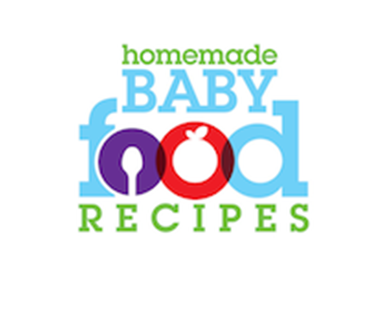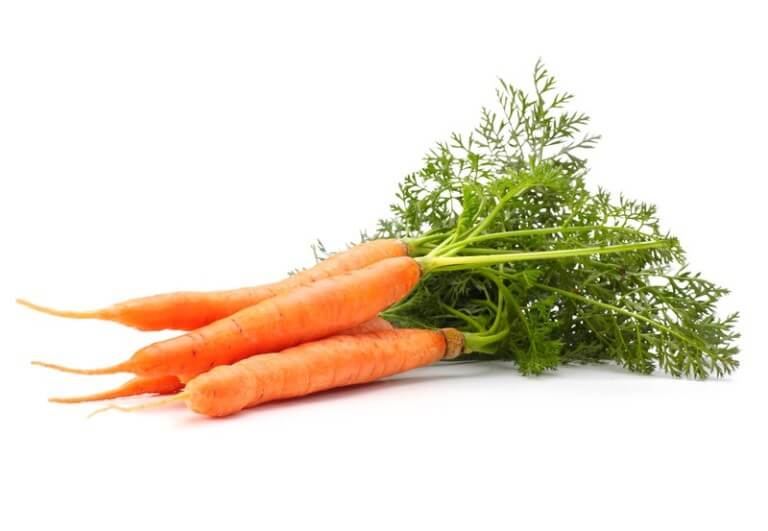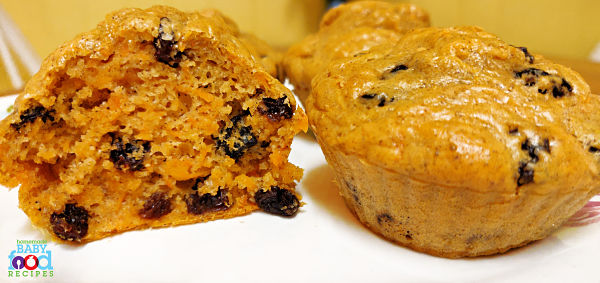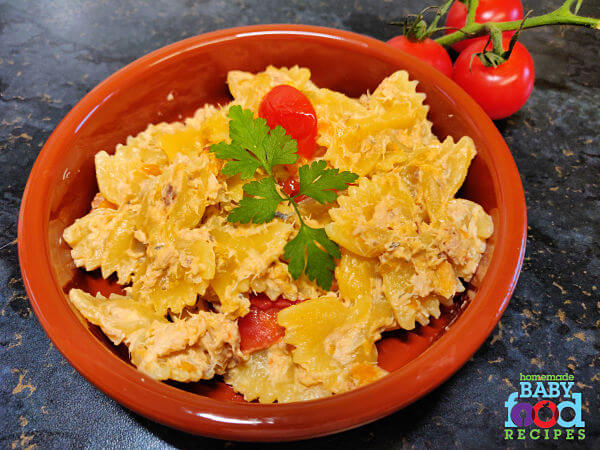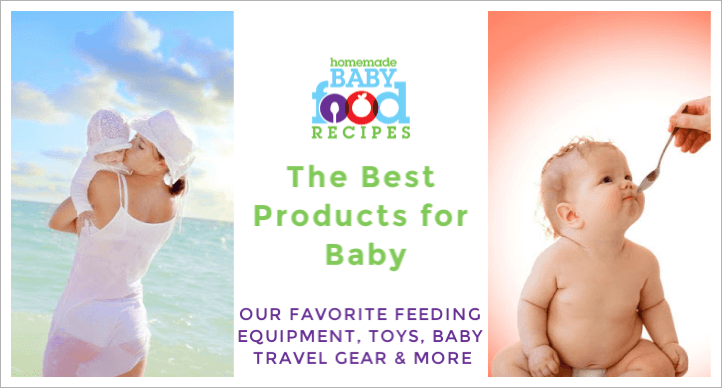Creative Carrot Baby Food Recipes and Ideas For Tiny Diners
Updated Sept 5th, 2023
They’re sweet and delicious, wholesome and nutritious – no wonder babies love carrots!
On this page, we’ll show you how to make yummy carrot baby food recipes, with lots of tips to help you safely prepare this veggie for your little one!
Is carrot baby food safe? What about nitrates?
Many parents worry about using carrots in their homemade baby food recipes as they have heard they are high in nitrates.
Instead, parents are often advised to use jarred carrot baby food, as it is perceived to be safer.
However, the position of the American Academy of Pediatrics is as follows…
“Infants fed commercially prepared infant foods generally are not at risk of nitrate poisoning.
However, home-prepared infant foods from vegetables (eg, spinach, beets, green beans, squash, carrots) should be avoided until infants are 3 months or older, although there is no nutritional indication to add complementary foods to the diet of the healthy term infant before 4 to 6 months of age. “
In other words, preparing homemade carrot baby food recipes is considered to be safe for babies of at least 3 months of age – far earlier, in fact, than the introduction of ANY solids is recommended!
For more details, please see the AAP’s article – Infant Methemoglobinemia: The Role of Dietary Nitrate in Food and Water
Of course, you may also wish to discuss the issue of nitrates with your baby’s doctor.
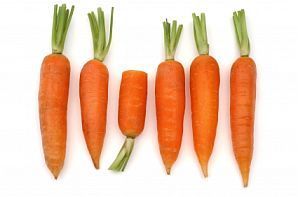
nutritional information
One of the most well known benefits of consuming carrots is that they promote good vision (remember how you were told as a child to eat up your carrots so you could see in the dark?).
Carrots are the BEST vegetable source of beta-carotene, which the human body converts to vitamin A.
A deficiency of vitamin A can cause poor vision – including night vision – so Mum was quite right after all!
The antioxidants in carrots also protect the eyes against the effects of aging and help prevent the development of cataracts in the elderly.
And, of course, the powerful antioxidants, minerals and fibre provided by carrots help guard against other serious conditions like heart disease and cancer.
Carrots may turn baby’s skin orange…
…if eaten very regularly.
Although you may find your baby’s sun-tanned hue a little disconcerting, it’s not harmful and should disappear as you begin to cut back on the carrots!
Please note, however, that if the whites of your baby’s eyes look yellow, or if you are at all concerned, you should consult your child’s doctor.
choosing and storing your veggies
Carrots – which are hardy root vegetables related to both parsley and parsnips – are usually orange, but can also be white, red… or even purple!
Carrots with a rich orange colour contain more beta-carotene then those of a lighter hue – and it’s a good idea to buy carrots with the green tops still attached.
This is because the tops wilt very quickly and are excellent indicators of the age of the carrot!
Those with nice, feathery green tops are undoubtedly fresh – whereas those with droopy tops should be avoided.
Also, steer clear of ‘bendy’, rubbery carrots, those with cracked skins, or with areas of green discolouration.
These are all indicators that the carrots are old, which will affect their nutritional value AND flavour.
Which are better – baby carrots or regular ones?
Those nice little bags of peeled, washed baby carrots – with their tidy, uniform size – would seem to be the most nutritious choice for your carrot baby food recipes.
So it may come as a surprise to learn that they’re not!
Those carrots are not actually ‘baby’ carrots at all.
Instead, they’re regular carrots, trimmed to a uniform shape and size.
‘Real’ baby carrots (or miniature carrots) do actually exist, but they’re much harder to find and tend to be very expensive.
Processed ‘baby’ carrots are peeled and washed in special solutions.
Yet the vast majority of the nutrients in carrots are contained in the peel!
A healthier option is to buy organic carrots (which do not require peeling) and to avoid the pre-washed carrots altogether!
Find out more about whether or not to peel fruits and vegetables for your baby
It’s also a good idea to search for particularly thick carrots.
This is because the sugars are concentrated in the core of the vegetable… therefore, the larger the core – the sweeter the carrot!
Handy tip!
Don’t store your carrots with potatoes, apples or other ethylene gas-producing veggies or fruits.
This will not only shorten their shelf life, but may also make them taste bitter.
Although those green tops we talked about earlier are useful indicators of age, you should cut them off before you put your carrots in the fridge!
Why?
Because they will draw the moisture from the carrots, affecting their quality and shortening their shelf life.
Instead, wrap your carrots in a paper towel, store them in the coolest part of the fridge – and they should be good for up to 2 weeks!
raw or cooked?
Raw carrots may pose an extreme choking hazard to babies as they are very difficult to ‘gum’.
Some parents will give their child a whole, raw carrot to gnaw on if they are teething – but, if you choose to do this, please be aware that it’s possible for little bits to break off in your baby’s mouth and that you should watch him constantly.
Other parents offer their little ones finely grated carrot instead – (see this page… Fruits and Vegetables for Baby – Do They Have to Be Cooked? for more information about including raw foods in your baby’s diet).
However, research has shown that there is no benefit in serving raw carrots as opposed to cooked!
Unlike many other veggies, carrots may be MORE nutritious when gently cooked.
This is because the cooking process breaks down the thick cell membranes, making the fibre more available to the body, releasing other nutrients AND releasing sugars (giving the carrot a sweeter taste).
Cooked carrots make a wonderful finger food for babies!
Read more about research into the pros and cons of cooked carrots vs. raw (external link)
Carrots for baby’s first food?
In many parts of the world, rice cereal is recommended as THE first food for babies.
However, as we discuss on our page – The Best First Food For Baby it may NOT be the most appropriate choice for everyone – and certain fruits and vegetables may make acceptable (if not better) alternatives!
Carrots are a good first food for babies because – in addition to their many nutritious qualities – they are very easy to digest, are rarely responsible for any allergic reaction and have a flavour that babies find appealing!
Please note, however, that – whilst rare – some people DO experience an allergic reaction to carrots.
This reaction is associated with birch pollen allergy – please see this page for more information.
Is fresh always best?
Learn about using frozen and canned carrots in your homemade baby food recipes!
Making carrot baby food – how to puree carrots
Carrots are very versatile – they can be steamed, boiled (in very little water, to preserve their nutrients), roasted or even fried!
Research suggests, however, that boiling may be the healthiest option as it preserves many of the carrot’s nutrients and actually INCREASES the quantities of some antioxidants (see this post on our blog for more information).
To make a simple carrot puree for your baby, slice or chop a carrot and either steam it – or boil it in a little water – until tender (this will probably take around 5 – 8 minutes).
Don’t overcook the carrots to the point where they become mushy or watery, as they will have lost much of their goodness.
Next, puree with a baby food processor or hand blender, adding a little breast milk or formula if you require a thinner texture.
Learn more about…
How to thicken baby food purees
However, another method – and a big favourite with OUR babies – is to BAKE the carrots, which really intensifies the sweetness and is very easy to do!
Just cut the carrots into sticks, wrap loosely in foil and pop into an oven preheated to 375 deg F.
The carrots will cook in their own steam and should be tender and ready for pureeing within 20-30 minutes – please take care when you open the foil parcel, as steam will escape!
The taste of baked carrots is so appealing that they really don’t need enhancing – but you can, of course, add a little ‘zip’ by tossing the carrots first in olive oil and fresh herbs or – for older babies – adding a little lemon juice.
You can also create tasty combos by adding another fruit or veggie to the parcel prior to cooking – sliced apple or pear tastes great!
AND – besides the yummy flavour – there’s another benefit to this method of cooking carrots for your baby… no pots to wash up afterwards!
Readers' Pics
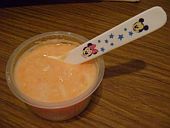
Carrot, cereal and EBM
Jenny – Malaysia
Easy carrot baby food ideas
Here are a few suggestions for other fruits and veggies that pair up wonderfully with carrots…
- sweet potato
- apple
- butternut squash
- parsnips
- white potato
- swede/rutabaga
- ginger
- parsley
- dill
- chives
- coriander/cilantro
- thyme
- marjoram
- nutmeg And here are some herbs and spices that perfectly compliment the flavour of carrots (read more about introducing spices, herbs and garlic to your baby)
Readers' Pics
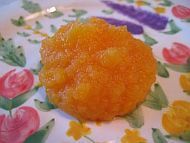
Apple and carrot puree
I added a few pieces of sweet mango to this recipe. It was so yummy – my little Evan loves it!
Lillie – Tanzania
Carrot baby food recipes
Carrot and apple soup (6 months+)
1 large carrot, peeled (if not organic) and diced
1 white potato, peeled and diced
1 apple, peeled, cored and diced
pinch nutmeg (optional)
low sodium or homemade vegetable stock – or water
- Place the veggie and apple cubes into a saucepan and cover with stock.
- Bring to the boil, then reduce the heat and simmer until tender (around 10 mins), adding a little extra stock if necessary.
- Add the nutmeg, transfer to a blender and puree until smooth
This is a very versatile recipe – by adjusting the amount of stock that you use, you can create a very thick, almost puree-like soup – or a runnier, ‘traditional’ soup!
Parsnip and carrot baby food puree with thyme (6 months+)
1 tbsp unsalted butter
6 oz (3/4 cup) carrots, sliced (and peeled, if not organic)
6 oz (3/4 cup) parsnips, sliced
1 garlic clove, crushed (optional)
1 sprig of fresh thyme or a pinch of dried
8 fl oz (1 cup) low sodium or homemade chicken stock
- Preheat the oven to 375 deg F, 190 deg C.
- Saute the carrot and parsnip in butter over a low heat.
- Add the garlic (if using) and the thyme and continue to cook until the veggies are tender.
- Pour in the stock and bring to the boil.
- Transfer to an oven-proof dish and cover.
- Cook for a further 20 mins.
- Remove the thyme sprig, then puree or mash.
Fruity carrot baby food combo (6 months+)
8 oz (1 cup) carrots, peeled (if not organic) and diced
2 oz (1/4 cup) dried apricots, chopped
water
- Easy peasy – just simmer both ingredients in enough water to cover until tender, then puree or mash well. Delicious!
Readers' Pics
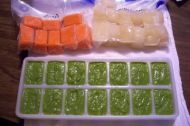
Our granddaughter loves the Fruity Carrot Combo (recipe above) much better than plain carrots!
I love making her fresh baby food and freezing it in cubes so that she can have a variety.
This picture also shows fresh steamed english pea puree and fresh pear puree that I’ve made for her.
Sometimes I add a little pear to her English peas to sweeten them up.
We love knowing that she is getting the best fresh vegetables and fruits.
Kathy – Florida, USA
Readers' Pics

Yummy Yummy
I never would have thought to put apricots with carrots.
It was so easy and yummy!
Actually the majority of your recipes are things I never would have thought about mixing.
HE LOVES THEM!! Keep up the good work!!
This website is what helped me to stop buying baby food and to start making my own.
I love knowing exactly what is in his food!
Quinn – Strawberry Point, IA, USA
Readers' Pics

Fruity Carrots
Great website for homemade baby food, it gives you great new twists on the traditional bland foods.
My daughter Cheyanne loves this recipe!
Allison – Newmarket, Ontario, Canada
Easy cheesy carrot mash (6 months+)
2 potatoes, peeled and cut into chunks
2 carrots, peeled (if not organic) and cut into chunks
1 tsp unsalted butter
pinch nutmeg
handful of grated cheddar cheese
- Boil the carrot and potato chunks until tender, then drain and mash thoroughly.
- Stir in the butter and nutmeg.
- Top with the grated cheese and place under the grill/broiler until golden.
- Cool and serve.
Sunshine humus (8 months+)
1 medium carrot, peeled (if not organic) and sliced
1 fl oz (1/8 cup) water
1 clove garlic, crushed
8 oz (1 cup) canned chickpeas (use salt-free chickpeas, otherwise drain and rinse thoroughly)
pinch paprika
- Steam or boil the carrot until tender.
- Place the carrot, water, garlic and chick peas into a food processor and blend until smooth.
- Sprinkle with paprika and serve with pieces of warm pita!
from our blog…
Homemade baby food equipment…
Homemade baby food accessories
Sources:
www.webmd.com – Carrots Good for Eyes?
More carrot baby food recipes around our site…
Check out our Vegetarian Baby Food Recipes section, which includes recipes for Lentil soup, a Cheese and Vegetable Supper and a Root Vegetable Trio ALL containing nutritous carrot!
Our Healthy First Birthday Cake Recipes section includes a delicious recipe for sugar free carrot cake.
Here’s a tasty Trio of Roasted Root Vegetables recipe from our blog!
Learn to make carrot bread, which you can then slice and bake to create healthy teething biscuits
